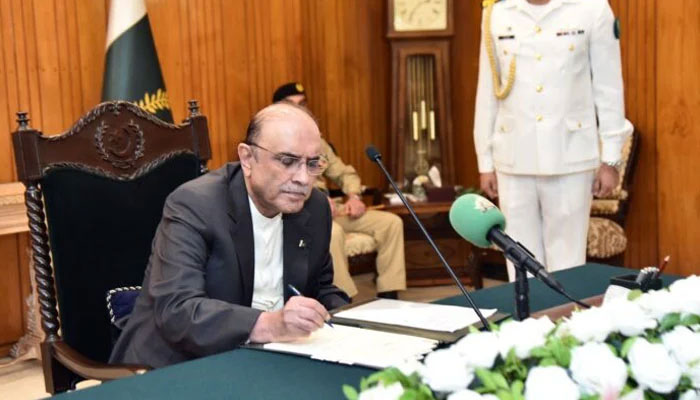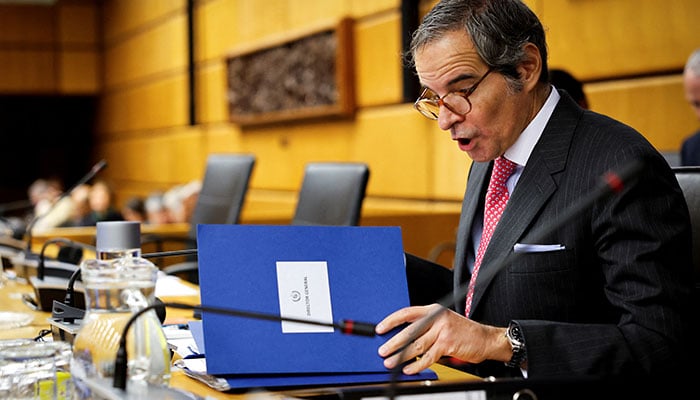

- PM had advised president to give assent to legislation.
- Gazette notification issued for highly contentious law.
- Legislation passed in marathon sessions of NA, Senate.
ISLAMABAD: President Asif Ali Zardari on Monday signed the 26th Constitutional Amendment Bill into law upon the advice of Prime Minister Shehbaz Sharif today following the approval of the said legislation by the parliament.
A gazette notification has been issued following the president's assent to the contentious legislation.
The development comes after the ruling coalition succeeded in pushing the highly contentious judicial reforms through the Parliament via a two-thirds majority with 225 and 65 votes in the lower and upper house, respectively.
Under the judicial reforms — opposed by the Pakistan Tehreek-e-Insaf (PTI) which boycotted the voting process — the chief justice of Pakistan will now be selected by a parliamentary committee and have a fixed term of three years. Also, a new constitutional bench will also be formed under the constitutional package.
Following the late-night marathon session in the Parliament, PM Shehbaz sent an advice to President Zardari in the wee hours of Monday to give his assent and sign the legislation into law.
Earlier in the day, the Aiwan-e-Sadr Secretariat had said that the ceremony, originally slated to take place at 6am, was postponed.

The treasury benches, comprising 211 seats, required 224 votes in the NA. However, their numbers rose to 219 following the Jamiat Ulema-e-Islam-Fazl's (JUI-F) support.
The amendments were passed after the PTI-backed independent lawmakers including Zahoor Qureshi, Aurangzeb Khichi, Usman Ali, and Mubarak Zeb voted in favour of the motion along with the Pakistan Muslim League-Quaid's (PML-Q) Chaudhry Ilyas.
With the president's assent today, the Constitutional Amendment Bill 2024 has now become an Act of the parliament which be followed by the formation of a special parliamentary committee — responsible for the appointment of the new CJP under clause 3 of Article 175A of the Constitution.
Incumbent CJP Qazi Faez Isa, who is set to retire on October 25, will send the names of three senior judges to the committee under sub-clause 3 of Article 175A.
The committee will appoint the next CJP and will send the name to the PM who will then forward it to the president.
Highlights of the bill
- Chief Justice of Pakistan's (CJP) tenure fixed at three years.
- Constitutional benches to be established at the SC and high courts.
- Senior-most judge of each bench to serve as presiding officer.
- Parliamentary committee to nominate new CJP from panel of three most senior judges.
- Committee to propose name to PM, who will then forward it to president for final approval.
- JCP, led by CJP and three others, responsible for appointment of SC judges.
- JCP to monitor judges’ performance, report any concerns to Supreme Judicial Council.
- Complete eradication of Riba (interest) from country by January 1, 2028.












